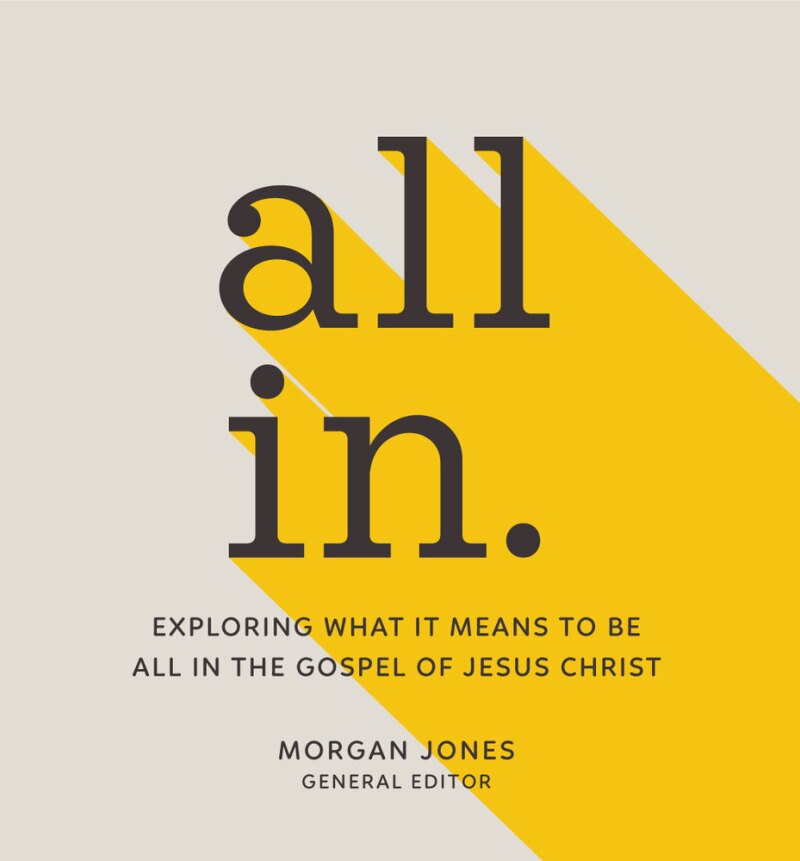“Morgan, I don’t know if I can do this.”
My friend Bre Lasley was on the other end of the line and had called me in the middle of the workday.
I first met Bre on the second anniversary of the home intrusion that could’ve very easily taken her life. We were at a weekend retreat and were assigned to be roommates. Bre and I always tell people you bond very quickly when you’re assigned to share a room with a complete stranger. The first night we stayed up until 3:00 a.m. talking and she told me her story. Just in case you missed her episode, let me briefly recap: Five years ago, Bre was getting ready for bed when she heard a man’s voice outside her open window say, “Hey, girl. I’m coming in.” The man climbed into Bre’s bedroom, and for six minutes, she and her sister Kayli fought for their lives. Miraculously, a police officer happened to be in the neighborhood and heard cries for help. Kayli led him to the basement, where the intruder held a knife against Bre’s throat—the same knife he had already used to stab her. The officer aimed and fired, killing the intruder and saving Bre’s life. It was a miracle, and Bre has always given all the glory to God. In fact, in a video following the attack, Bre can be heard saying, “Heavenly Father was there the entire time, the entire time.”
The story is nearly unbelievable, and Bre does an incredible job telling it, so I was thrilled when she agreed to do the podcast. We set a date and scheduled a time, and then she called. I could tell simply by the tone of her voice that she was stressed out. She explained to me that while she absolutely has a testimony of the gospel, there were things she had questions about and sometimes she didn’t feel “all in.” She didn’t want to pretend to be something she was not. If I could’ve, I would’ve jumped through the phone right then and there, given her a hug, and told her that this is precisely why we needed her on this podcast.
I explained something to her that I want to make very clear up front in this book: Our greatest hope with this podcast is to show that there are many ways to be all in the gospel of Jesus Christ—that when we speak of being “all in,” it is not a reference to being either all in or all out. There is a lot of in-between. So that day on the phone, I told Bre I wanted her to be totally honest with where she was in her faith. I assured her I would never want to misrepresent her faith either.
A week later, Bre sat across from me, and when I asked that final question, this was her answer:
“I love this question, and it was really thought-provoking, and I’ve been thinking about it ever since you asked me to come on the podcast. I think my best answer came [while] thinking about the sacrament prayers. Because I do struggle. There are things that I struggle with, and I think that it’s okay to have questions. It’s okay to have doubts, and you can be all in. This is what I’m learning, literally this week, that I can still be all in. I think I was so hard on myself—I felt like I couldn’t even do this podcast, honestly. . . . But at the end of the day, I know that I have Heavenly Parents who love me, that gave me a Savior, that gave me an opportunity to live a wonderful life with a wonderful family, and a chance to live together forever. I think that for my answer of what it means to be all in, it is to be willing to be like Jesus, just like we try to every Sunday. I think it’s being willing to take His name upon us, meaning just every day [being like], ‘I just want to be more like Jesus.’ And if I can take that promise literally, daily, then that’s kind of my answer. [It] is just always remain willing.”
► You may also like: Dive deeper into what it means to be all in the gospel of Jesus Christ with the new ‘All In’ book!
In his October 2020 general conference talk, President Russell M. Nelson said, “The word willing is crucial to this interpretation of Israel. . . . We can choose to be of Israel, or not. We can choose to let God prevail in our lives, or not. We can choose to let God be the most powerful influence in our lives, or not.”
When I look back, the people who have been on this podcast are not perfect, but they are willing, and they are honest about their faith. None of us know what we are going to go through tomorrow, or the next day, or the day after that, or how those experiences will affect or shape our beliefs. But what we do know is what we believe in an individual, isolated moment. In each interview, we talk with people in those very moments—these interviews represent just a small snapshot of their faith over the course of a lifetime. So, while beliefs could change with time for any one of the people in this book, I believe there is beauty in what they chose to share on that particular day during the time we spent together. That belief and their individual desire to share it publicly will be a part of their stories forever.
On our very first episode, speaking of looking back at history, Janiece Johnson, a historian at Brigham Young University, said, “I believe the real story is always better than the fake story. It often requires more work on our part. And we have to be willing to deal with the messiness. When you’ve got human beings who are full of opposition, it is always going to be messy. . . . When we’re dealing with difficult topics, with human beings who are limited and mortal, there is going to be messiness. And I believe that if we approach the messiness head-on, there is strength and power in that. The gospel will still be true.”
Don’t you find that to be true of the present just as much as of the past? It is that messiness that we have tried to capture on this podcast, whether it be my mess or your mess or our guests’ mess. It is my belief that it is our mess that allows us to connect with one another. It is acknowledging that our faith is imperfect and that we have questions but then turning to God with those questions. And isn’t that the essence of the gospel we believe in?
As Sister Sharon Eubank said in her answer to our final question, “I think about a fourteen-year-old boy who went into a grove because he had a question. And he emerged with this absolute confidence that Jesus Christ knew who he was and had a work for him to do. And we live in a world where Satan’s had millennia to structure it in such a way that it distracts us so that we’re half in or mostly out or all out. And for me, being all in means that I’ll take my questions to Jesus Christ—He’s the most important source for my questions—and that I have the confidence that He absolutely knows who I am, that He has a work for me to do. Jesus Christ is the biggest, most powerful thing that’s ever happened to me. It’s His mercy and His love and His patience with me. I just love His gospel and I love His ways, and I want to tell everyone about this joy. He knows my name. He answers my questions. He forgives my mistakes. He wants my help. And that’s what keeps me all in.”



